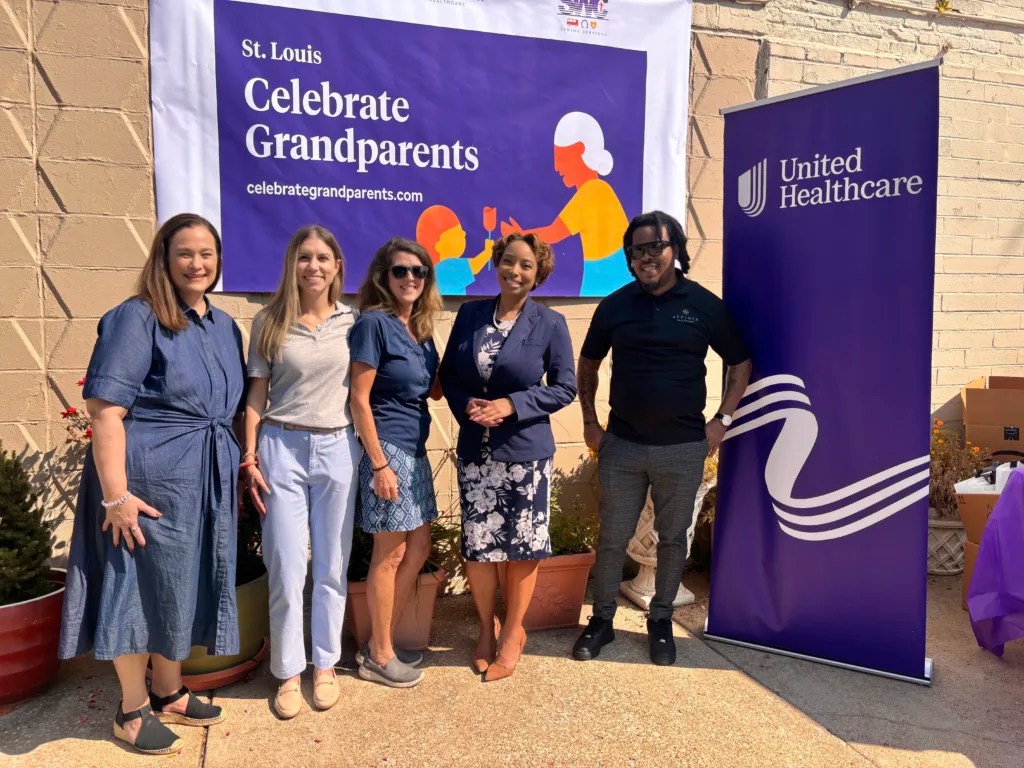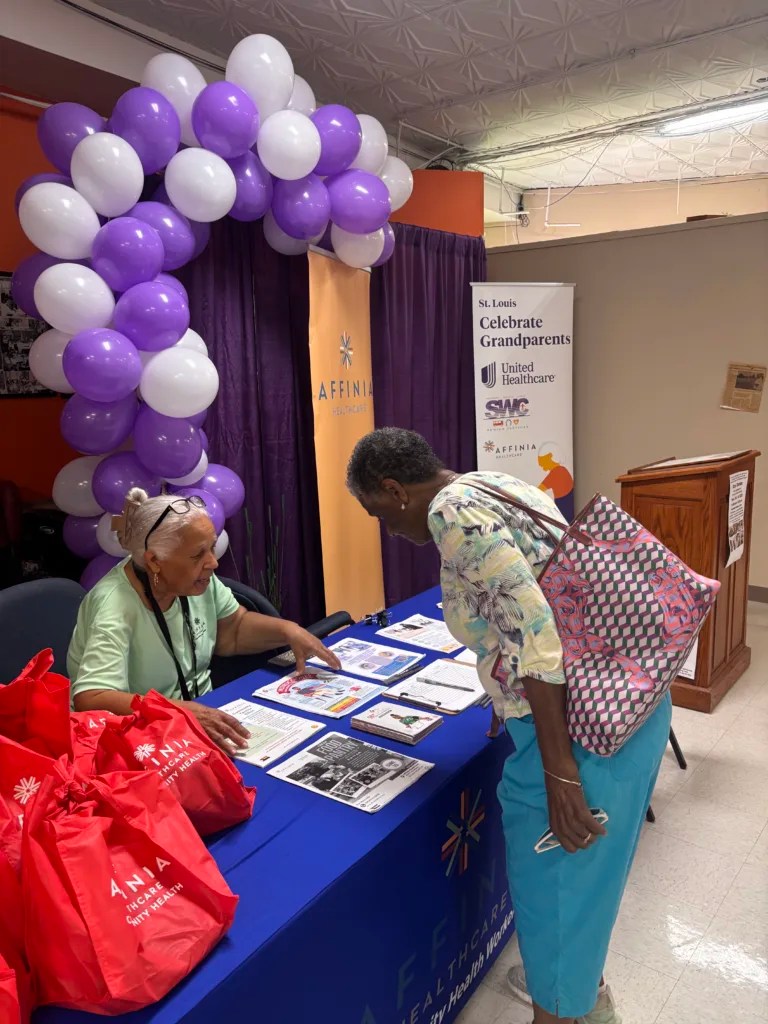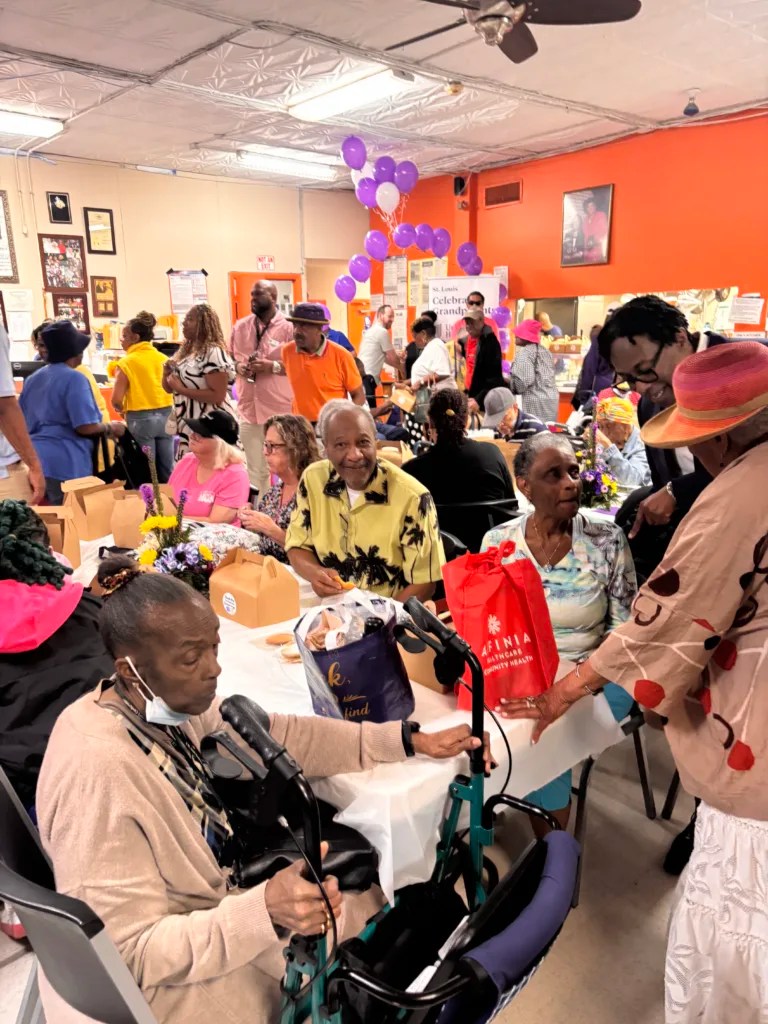A St. Louis initiative highlights the importance of collaboration in addressing the health and dignity of grandparents.

America is aging quickly! By 2034, adults over 65 will outnumber children for the first time in U.S. history. With longer lives come complex health needs, tighter budgets, and new challenges such as rising utility costs, medication management, and limited access to preventive care. Addressing these issues requires creativity and collaboration that bring health and household support directly to older adults where they live and gather.





Saint Louis recently offered a powerful example. At the South Side Wellness Center, Affinia Healthcare, South Side Wellness Center, UnitedHealthcare, and Ameren joined forces to provide an unusual but vital mix of services: blood pressure checks, blood glucose screenings, vaccinations, stress reduction techniques (provided by Licensed Clinical Social Workers), and utility assistance—all in one place, in one day, for grandparents across the region.
This event wasn’t just convenient. It was a practical blueprint for integrated care, one that researchers say can close gaps in access and reduce preventable health problems among older adults.
September marks National Grandparents Day, a time set aside to honor the wisdom, sacrifice, and love grandparents bring to families and communities. But while this recognition is important, it should not be confined to a single Sunday each year. The reality is that every month should be Grandparents Month.
Grandparents across America are raising grandchildren, holding families together, and serving as anchors in neighborhoods that need stability. They deserve more than symbolic gestures; they deserve year-round access to health screenings, vaccinations, and social supports that help them live healthier, more secure lives.
The Saint Louis collaboration turned recognition into action. By meeting older adults in a trusted community space, it translated care and respect into tangible services that directly improved their quality of life.
Older Americans are more likely than younger adults to live with multiple chronic conditions, including high blood pressure and diabetes. Studies show that comprehensive community-based assessments identify not only medical needs but also unmet concerns in dental care, mobility, mental health, and social connection, all of which affect quality of life (Aronoff-Spencer et al., 2020).
Health fairs and screenings, when combined with structured follow-up, can uncover hidden conditions and connect people to care. Evidence demonstrates that community programs with organized callbacks and navigation improve linkage to primary care and treatment (Fritz et al., 2023).
Vaccinations are another critical piece. Older adults face higher risks from influenza, pneumonia, shingles, and COVID-19, yet uptake often lags because of access barriers. Reviews show that delivering vaccines in community settings and pairing them with trusted partners improves coverage (Pereira et al., 2024; Pennisi et al., 2025).
But health is not only clinical. Energy insecurity—the struggle to pay utility bills or maintain safe indoor temperatures—is linked to worse physical and mental health outcomes. For seniors living on fixed incomes, choosing between medication and electricity is a dangerous reality. Policy research highlights that timely energy assistance can improve both health and financial stability (Graff et al., 2024). By including Ameren in the effort, the Saint Louis event acknowledged that utility support is a form of preventive health care.
The path forward is clear:
Anchor in trusted spaces. Senior centers, churches, and libraries are ideal hubs where older adults already feel welcome.
Co-locate health and social care. Blood pressure checks and utility support may seem worlds apart, but for seniors, they are part of the same reality.
Prioritize follow-up. Screenings without callbacks or navigation don’t change outcomes. Assigning navigators makes all the difference (Herd et al., 2023).
Measure impact. Track not only screenings and vaccinations, but also successful referrals, benefits secured, and improvements in confidence and self-care.
Integrated models take time to build, but they consistently deliver better access, higher satisfaction, and stronger engagement among older adults (Dambha-Miller et al., 2021; Karacsony et al., 2022).
The Saint Louis event proved that collaboration across health care, insurers, and utilities can work, and that it can honor grandparents not just with words, but with action. It offered dignity, convenience, and care to older adults who often carry the double burden of managing their own health while supporting their families.
If we truly want to honor our grandparents, we must do it not only in September, but every single day. Meeting them where they are with health, compassion, and resources is how we leave no elder behind.
References
Aronoff-Spencer, E., Asgari, P., Finlayson, T. L., Gavin, J., Forstey, M., Norman, G. J., … Agha, Z. (2020). A comprehensive assessment for community-based, person-centered care for older adults. BMC Geriatrics, 20, 193.
Dambha-Miller, H., Simpson, G., Hobson, L., Roderick, P., Little, P., Everitt, H., & Santer, M. (2021). Integrated primary care and social services for older adults with multimorbidity in England: A scoping review. BMC Geriatrics, 21, 674.
Fritz, C. D., et al. (2023). Analysis of a community health screening program and participant follow-up. Journal of Primary Care & Community Health, 14, 1–9.
Graff, M., Hennessy, J., & Brown, M. A. (2024). Addressing energy insecurity: Policy considerations for energy bill assistance programs. Energy Reports, 10, 2669–2682.
Herd, P., Moynihan, D., & Bosch, M. (2023). Improving older adults’ health by reducing administrative burden. The Milbank Quarterly, 101(2), 459–485.
Karacsony, S., Williams, M., de Bellis, A., et al. (2022). What are the clinical and social outcomes of integrated care for older people? A qualitative systematic review. International Journal of Integrated Care, 22(3), 14.
Pereira, A., Sousa, F., & Figueiredo, C. (2024). Vaccination promotion strategies in the elderly: Systematic review. Vaccines, 12(5), 675.
Pennisi, F., et al. (2025). Improving vaccine coverage among older adults and individuals with chronic conditions: A systematic review and meta-analysis of hospital-based interventions. Vaccines, 13(2), 210.
Dr. Frederick Echols, MD, is available as a subject matter expert on public health for press interviews and speaking engagements.
###
About Dr. Fredrick Echols, MD
Dr. Fredrick L. Echols, MD is the founder and Chief Executive Officer of Population Health and Social Justice Consulting, LLC, an Obama Foundation Global Leader, sought-after public speaker, black men’s health advocate, and accomplished physician with over 15 years of experience in public health. He has worked extensively with public and private sectors to address complex health issues through evidence-informed approaches. Dr. Echols is a graduate of the Centers for Disease Control and Prevention Population Health Training in Place program and the ASTHO-Morehouse School of Medicine’s Diverse Executives Leading in Public Health program.
Passionate about health and justice, Dr . Echols’ notable roles include serving as Chief Executive Officer for Cure Violence Global, Health Commissioner for the City of St. Louis, and Director of Communicable Disease and Emergency Preparedness for the St. Louis County Department of Public Health. In these roles, he oversaw public health regulations, led COVID-19 response efforts, managed daily operations, and developed strategic partnerships. Dr. Echols also served as Chief of Communicable Diseases for the Illinois Department of Public Health and as a physician in the U.S. Navy. He continues to contribute to public health research and guides health organizations globally.
For more health tips follow Dr. Fredrick Echols @ Fredrick.Echols@gmail.com
Follow Dr. Echols on socials:
LinkedIn: @FredrickEcholsMD ( www.linkedin.com/in/fredrick-echols-m-d-5a2063225)
Facebook: @FredrickEchols
Instagram: @F.EcholsMD
#GrandparentsHealth #SeniorCare #CommunityWellness


